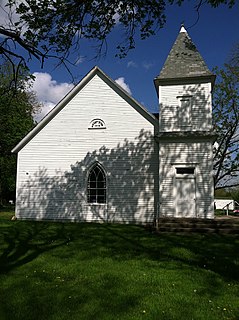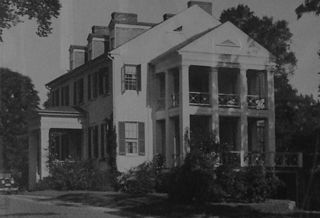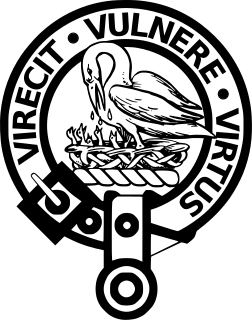Related Research Articles

Ambrose Powell Hill Jr. was a Confederate general who was killed in the American Civil War. He is usually referred to as A. P. Hill to differentiate him from another, unrelated Confederate general, Daniel Harvey Hill.

William Dorsey Pender was a General in the Confederacy in the American Civil War serving as a Brigade and Divisional commander. Promoted to brigadier on the battlefield at Seven Pines by Confederate President Jefferson Davis in person, he fought in the Seven Days Battles and at Second Manassas, Fredericksburg and Chancellorsville, being wounded in each of these engagements. Lee rated him as one of the most promising of his commanders, promoting him to major general at twenty-nine. Pender was mortally wounded on the second day of Gettysburg.

Decatur Dorsey was a Union Army soldier in the American Civil War and a recipient of the U.S. military's highest decoration, the Medal of Honor, for his actions at the Battle of the Crater. Born into slavery, Dorsey enlisted in the United States Colored Troops and served through the last year of the war.

The Battle of Mount Zion Church was fought on December 28, 1861, in Boone County, near Mount Zion Church, during the American Civil War. The resulting Union victory here and elsewhere in central Missouri ended Confederate recruiting activities in the region and pushed conventional Confederate forces out of the area until the desperate fall 1864 invasion by General Sterling Price and his Missouri State Guard.

Robert Frederick Hoke was a Confederate major general during the American Civil War. He was present at one of the earliest battles, the Battle of Big Bethel, where he was commended for coolness and judgment. Wounded at Chancellorsville, he recovered in time for the defense of Petersburg and Richmond. His brigade distinguished itself at Cold Harbor, acknowledged by Grant as his most costly defeat. Hoke was later a businessman and railroad executive.

Augustus Williamson Bradford, a Democrat, was the 32nd Governor of Maryland in the United States from 1862 to 1866. He served as governor during the Civil War and paid a heavy price for his devotion to the Union.

The Lee family of the United States is a historically significant Virginia and Maryland political family, whose many prominent members are known for their accomplishments in politics and the military. The family became prominent in colonial British America when Richard Lee I immigrated to Colonial Virginia in 1639 and made his fortune in tobacco.

James Jay Archer was a lawyer and an officer in the United States Army during the Mexican–American War. He later served as a brigadier general in the Confederate States Army (CSA) during the American Civil War.

During the American Civil War (1861–1865), Maryland, a slave state, was one of the border states, straddling the South and North. Despite some popular support for the cause of the Confederate States of America, Maryland did not secede during the Civil War. Because the state bordered the District of Columbia and the strong desire of the opposing factions within the state to sway public opinion towards their respective causes, Maryland played an important role in the war. Newly elected 16th President Abraham Lincoln, suspended the constitutional right of habeas corpus from Washington DC to Philadelphia, PA; and he dismissed Chief Justice Roger B. Taney of the U.S. Supreme Court's "Ex parte Merryman" decision in 1861 concerning freeing John Merryman, a prominent Southern sympathizer from Baltimore County arrested by the military and held in Fort McHenry. The Chief Justice had held that the suspension was unconstitutional and could only be done by Congress and would leave lasting civil and legal scars. The decision was filed in the U.S. Circuit Court for Maryland by Chief Justice Roger Brooke Taney, a Marylander from Frederick and former member of the administration of the seventh President Andrew Jackson, who had nominated him two decades earlier.

Mareen Duvall (1625–1694) was a French Huguenot and an early American settler.

Bryan Grimes was a North Carolina planter and a general officer in the Confederate Army during the American Civil War. He fought in nearly all of the major battles of the Eastern Theater of that war.

Dodon, is a 550-acre (2.2 km2) farm and former forced-labor tobacco plantation in Maryland, located near the South River about 10 miles (16 km) south west of Annapolis. Purchased in 1747 by the planter and politician Dr George H. Steuart, it remains the home of Steuart's descendants to this day. Steuart grew wealthy during the colonial era thanks to proprietarial patronage and the forced labor of enslaved people, but his family's prosperity and status was much reduced by the American Revolution and later by the American Civil War.

George Hume Steuart (1790–1867) was a United States general who fought during the War of 1812, and later joined the Confederate States of America during the Civil War. His military career began in 1814 when, as a captain, he raised a company of Maryland volunteers, leading them at both the Battle of Bladensberg and the Battle of North Point, where he was wounded. After the war he rose to become major general and commander-in-chief of the First Light Division, Maryland Militia.

The Steuart family of Maryland was a prominent political family in the early History of Maryland. Of Scottish descent, the Steuarts have their origins in Perthshire, Scotland. The family grew wealthy in the early 18th century under the patronage of the Calvert family, proprietors of the colony of Maryland, but would see their wealth and status much reduced during the American Revolution, and the American Civil War.

Caleb W. Dorsey, or Colonel Caleb Dorsey, served in the Missouri State Guard and the Army of the Confederate States of America during the American Civil War. After the war he became a California State Assembly member between 1877 and 1878.
Elioak is an unincorporated community in Howard County, Maryland, United States. It was the home of the "Pushpin Farm", a 200-acre slave plantation purchased in 1724 in the Howard District of Anne Arundel County by Col. Edward Dorsey and which is the site of many prominent Dorsey family graves. The postal community was named after the Elioak plantation built by Owen Dorsey, Judge of the Baltimore Orphans' Court. A postal office operated in the community from 12 June 1893 to 15 September 1922. Local farm orchards were known for prize winning apples and pears. Local families such as the Kahler, Miller, and Worthington claimed Elioak as home while they served in World War I. After the war, the name fell out of use.
Poplar Springs is a town located in western Howard County in the state of Maryland, United States.
Gassaway Sellman Grimes was a physician who practiced in Maryland for several years. He married Susan Dorsey, a descendant of the Dorsey family.
Edward Dorsey was a boat-wright and the patriarch of the Dorsey family of colonial Maryland. His name is also given as D'arcy.

Gustavus Warfield Dorsey was a cavalry commander during the American Civil War for the Confederacy. When famed cavalry commander Jeb Stuart was shot at the Battle of Yellow Tavern and mortally wounded, he fell into Dorsey's arms.
References
- ↑ "Confederate Veteran". 1909.
- ↑ Augustus Dorsey pension file no. 717367, National Archives